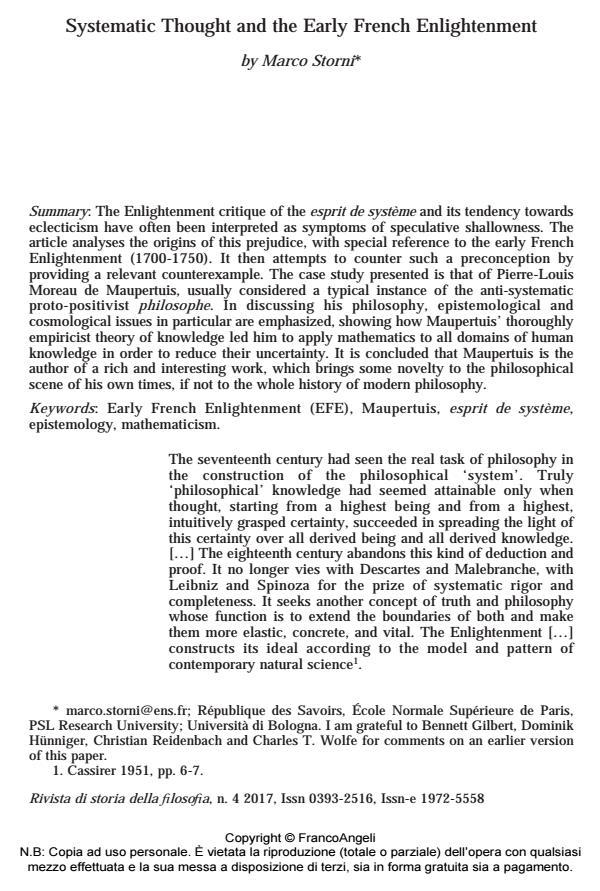Systematic Thought and the Early French Enlightenment
Titolo Rivista RIVISTA DI STORIA DELLA FILOSOFIA
Autori/Curatori Marco Storni
Anno di pubblicazione 2017 Fascicolo 2017/4
Lingua Inglese Numero pagine 12 P. 629-640 Dimensione file 47 KB
DOI 10.3280/SF2017-004008
Il DOI è il codice a barre della proprietà intellettuale: per saperne di più
clicca qui
Qui sotto puoi vedere in anteprima la prima pagina di questo articolo.
Se questo articolo ti interessa, lo puoi acquistare (e scaricare in formato pdf) seguendo le facili indicazioni per acquistare il download credit. Acquista Download Credits per scaricare questo Articolo in formato PDF

FrancoAngeli è membro della Publishers International Linking Association, Inc (PILA), associazione indipendente e non profit per facilitare (attraverso i servizi tecnologici implementati da CrossRef.org) l’accesso degli studiosi ai contenuti digitali nelle pubblicazioni professionali e scientifiche.
The Enlightenment critique of the esprit de système and its tendency towards eclecticism have often been interpreted as symptoms of speculative shallowness. The article analyses the origins of this prejudice, with special reference to the early French Enlightenment (1700-1750). It then attempts to counter such a preconception by providing a relevant counterexample. The case study presented is that of Pierre-Louis Moreau de Maupertuis, usually considered a typical instance of the anti-systematic proto-positivist philosophe. In discussing his philosophy, epistemological and cosmological issues in particular are emphasized, showing how Maupertuis’ thoroughly empiricist theory of knowledge led him to apply mathematics to all domains of human knowledge in order to reduce their uncertainty. It is concluded that Maupertuis is the author of a rich and interesting work, which brings some novelty to the philosophical scene of his own times, if not to the whole history of modern philosophy.
Parole chiave:Early French Enlightenment (EFE), Maupertuis, esprit de système, epistemology, mathematicism.
Marco Storni, Systematic Thought and the Early French Enlightenment in "RIVISTA DI STORIA DELLA FILOSOFIA" 4/2017, pp 629-640, DOI: 10.3280/SF2017-004008